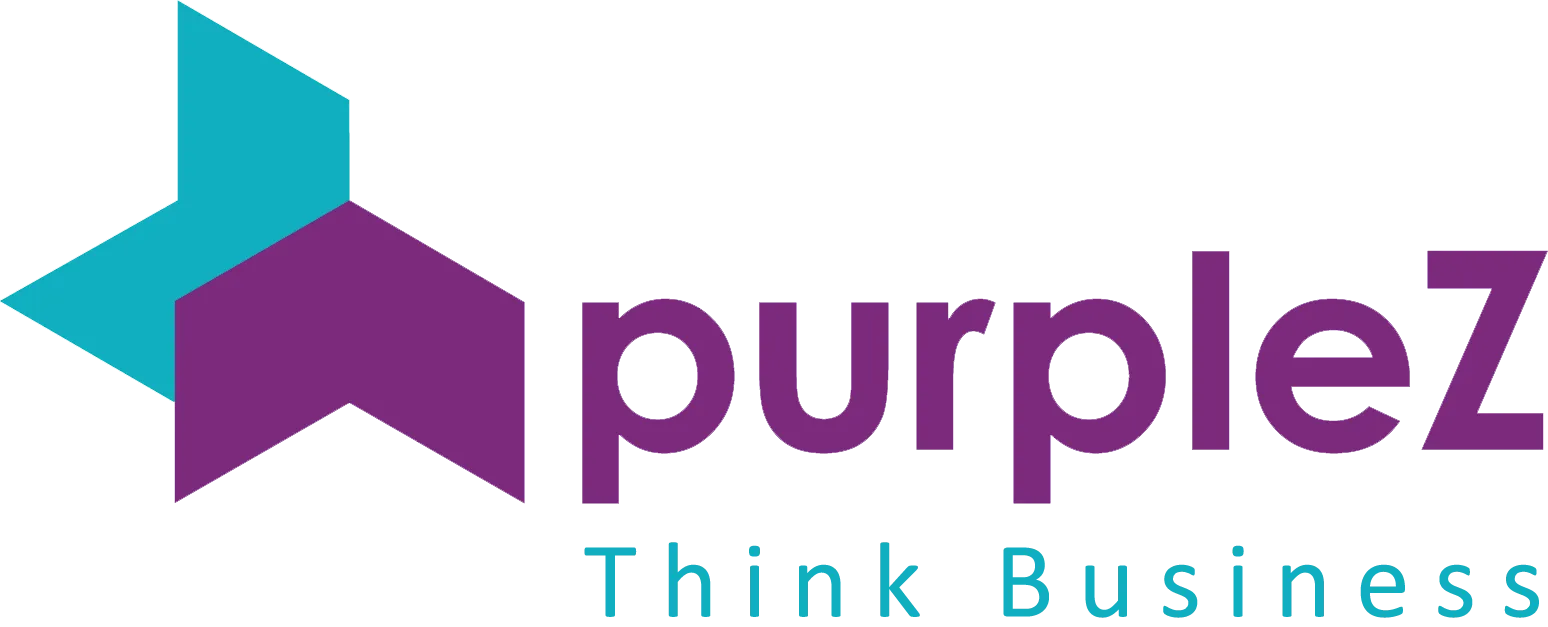A Pay-Per-Click (PPC) specialist is a digital marketer who specializes in optimizing, managing, and monitoring paid search campaigns. The responsibilities of a PPC specialist differ greatly according to the size of the business and its PPC budget. In small businesses with limited budgets, a PPC specialist may take on all aspects of campaign management, including creating ads and landing pages, setting up tracking systems, creating client reports, etc. In medium-sized companies that have larger budgets for PPC campaigns (but not enough to hire an entire team), there may be more than one person who handles different aspects of campaign management, such as keyword research or ad creation, while another person focuses on performance analysis, etcetera. Learn all about it and more at this blog by PurpleZ.
What is Pay-Per-Click (PPC) Advertising?
Online marketers that use pay-per-click (PPC) advertising must fork out money for each click on their advertisement. PPC ads are shown to users interested in specific topics, such as “casino chips” or “best casino games.” The ads are shown on search engines, social media, and other websites that allow advertisers to bid for their keywords.
PPC works best when the advertiser has high conversion rates and low cost per acquisition (CPA). You can use PPC to get more visibility for your business quickly or test out different strategies before investing heavily in one type of campaign over another.
Role of a PPC Specialist
As a PPC specialist, your main responsibility is to manage and optimize PPC campaigns.

A PPC specialist’s job is to use internet advertising techniques to improve sales and attract traffic to your website. A proficient PPC specialist must comprehend the requirements of the company and apply the appropriate tactics to attract and keep customers.
Skill Set Required for a PPC Specialist
A PPC specialist should be well-versed in the following:
- The PPC industry and its processes.
- The tools and platforms used in PPC campaigns.
- The metrics that are most effective for measuring campaign performance and ROI, as well as how to use them effectively.
- Best practices for creating successful paid search strategies and campaigns that produce optimal results for your business goals, including how to select keywords, bid prices, ad copy testing methods (including A/B testing), landing pages design elements such as site speed optimization and structure optimization techniques such as conversion funnel analysis or exit intent popups; along with other key areas such as budget management processes (including monthly spend caps), bidding strategy recommendations based on competitor data analysis etc..
PPC Strategies and Techniques in 2024
Here are just a few of the strategies used in the PPC marketing:
Keyword Selection
You must select the right keywords for your ads. This is an important step because it helps you find the right people and convert them into customers. For example, to advertise a new cat product, use keywords like “cat food” or “cat toys.” Please pay attention to the competition level of each keyword because this will help determine how much it costs per click (CPC) for each ad. Suppose there are too many competitors bidding on these terms. In that case, it might not be worth spending money on them because they have high CPCs and low conversion rates compared with other words that might lead users directly into conversion paths like “buy now” buttons, which can increase conversions significantly.
Ad Copy
The next step after selecting appropriate keywords is writing an engaging ad copy that resonates with potential customers while ensuring they know what they’re clicking on before they do so! This should include not just text but also images or videos depending on what kind works best given where each user lives/what kind of device they use most often when accessing social media platforms, etc.
Campaign Management
Campaign management is creating, optimizing, and managing PPC campaigns. This includes creating ads, setting up search campaigns, and managing budgets. Campaign managers are responsible for ensuring their ads perform well and generate revenue.

They also make sure that their keywords have enough volume to be profitable or if they need to add more relevant negative keywords to prevent wasted spend on irrelevant searches.
Performance Monitoring and Analysis
Two essential elements of PPC management are performance monitoring and analysis. The process of collecting and evaluating campaign performance data, including key performance indicators (KPIs) like click-through rate (CTR), cost per click (CPC), conversion rate, etc., is known as performance monitoring. This information can be used to optimize your ad copy and targeting strategy to increase conversions while minimizing costs.
Conversion tracking will help you determine what types of ads are most effective at generating conversions. In contrast, bidding management helps ensure that you’re getting the best possible return on investment from your paid search efforts by optimizing bids based on actual performance data rather than guessing which keywords or landing pages should receive higher bids based on their popularity with users versus their profitability for advertisers like yourself.
PPC and SEO Integration
One of the most important ways to optimize your PPC campaigns is by integrating it with SEO. This means you’ll have to think about how your ads support your website, which will help you improve conversions and traffic from organic search.
Integrating PPC with SEO can be done in a few different ways:
- Use keywords in ad copy that match content on the page or landing page (this is called “contextual matching”)
- Use branded keywords in ad copy, but make sure there’s supporting content on the page or landing page (this is called “branded non-contextual” matching)
- Include links within ads so users can navigate directly to specific pages on your site
Industry-Specific PPC Trends
PPC specialists are expected to be experts in all areas of digital marketing, including:
Digital Marketing
Digital marketers use PPC to drive traffic and conversions for their clients’ websites. On behalf of their clients, they could also oversee social media marketing or SEO initiatives.
Healthcare
The healthcare industry is one of the fastest-growing markets in the world, so it’s no surprise that there are more opportunities than ever for those who want to specialize in medical advertising. Job titles include medical copywriter and medical content strategist; these positions require knowledge about how doctors think and technical skills like HTML coding (hypertext markup language).
Retail/E-commerce Sales Associate
You’ll need excellent communication skills if you want this job! You’ll work with customers over email or phone calls when they need help finding products on your site — or making sure those items arrive at their houses on time!
The Role of Automation in PPC
As the role of a PPC specialist evolves, so must your approach to management. The biggest change will be how you manage your team and their workloads.
The role of automation in PPC is critical for both scaling and efficiency:
Automation helps you scale your business by allowing you to perform repetitive tasks faster, more efficiently, and at a lower cost than if done manually. For example, if you were running an e-commerce store that sells baby clothes, certain keywords might be relevant but not valuable enough for manual bidding (e.g., “baby”). A good rule of thumb is that any keyword with at least ten conversions per day should only be used for automated bidding (i.e., not manually). This ensures that our time isn’t wasted bidding on low-value terms like this one, which could otherwise be spent elsewhere on more lucrative keywords!
Ad Creatives in PPC
Ad creatives are the visual elements of your ads. They can be images or videos, but they should be designed to grab attention and inspire action. This is where you can emotionally connect with your audience by showing them what they’ll get from buying from you.

Ad creatives should also be in accordance with your brand’s identity, culture, and target audience expectations when advertising on social media platforms like Facebook and Instagram, which are infamous for their strict policies governing ad content.
Platform-Specific Strategies
There are two main strategies for platforms to run ads on:
Ad formats
The first step in determining the best campaign approach is choosing the right ad format. There are many different options available, and each one will have its pros and cons. For example, consider whether your product or service lends itself better to a video or image-based ad unit, which can be useful if you’re trying to grab attention quickly.
Ad extensions
Once you’ve decided on an appropriate format, it’s time to figure out how to use any available extensions, like site links (which allow businesses with multiple locations) or call-only ads (for mobile devices). These can help ensure users get all their questions answered before clicking through from search results!
Frequently Asked Questions
Below are some of your most popular questions:
What Is a PPC Specialist?
A PPC (Pay-Per-Click) Specialist is a digital marketing professional responsible for planning, implementing, and managing a company’s PPC strategy to increase online visibility, drive traffic, and generate leads through paid advertisements.
What Are the Primary Responsibilities of a PPC Specialist in 2024?
In 2024, a PPC Specialist’s key responsibilities include conducting keyword research, setting up and optimizing PPC campaigns, analyzing performance data, managing ad budgets, and staying updated with PPC and digital marketing trends.
How Has the Role of a PPC Specialist Evolved in 2024?
The role has evolved to include a greater focus on automation and AI-driven tools for campaign optimization, an increased emphasis on multi-platform strategies, and a deeper understanding of data privacy regulations and their impact on targeted advertising.
How Does a PPC Specialist Measure the Success of Their Campaigns?
Success is measured using metrics such as click-through rate (CTR), conversion rate, quality score, cost per click (CPC), and return on ad spend (ROAS). Analyzing these metrics helps in optimizing campaigns for better performance.
Conclusion
The future of PPC is bright. With the continued rise of automation and AI-powered tools, we’ll see more efficiency in our campaigns and better results for our clients. There will also be more opportunities for people with diverse skill sets to enter this field–even if they need to learn more about SEO! Get in touch with purplez for a free consultation with our PPC specialists!
